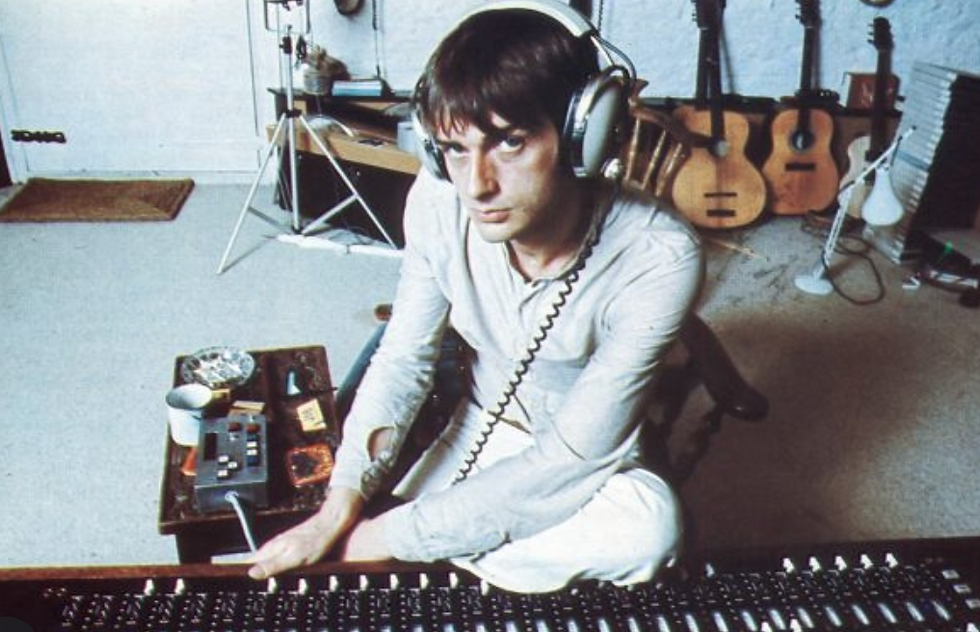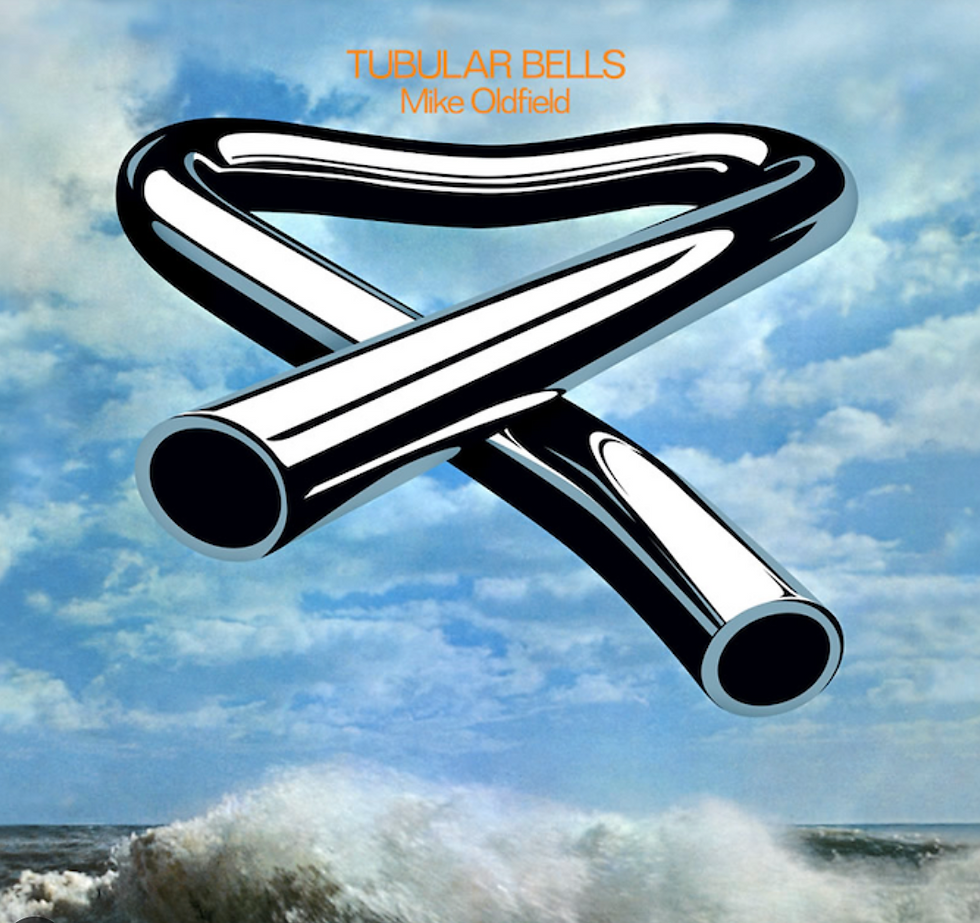Mike Oldfield: The Musical Visionary Behind Tubular Bells - Popoluarity Defined!
- The Gooch

- Dec 25, 2024
- 5 min read
Updated: Dec 25, 2024
Michael Gordon Oldfield, born on May 15, 1953, in Reading, Berkshire, England, is a renowned multi-instrumentalist and composer whose innovative work has significantly influenced the music industry. He is best known for his groundbreaking 1973 album Tubular Bells, which became an unexpected critical and commercial success.

Early Life and Musical Beginnings
Oldfield was introduced to music at a young age, receiving his first guitar chords from his father, a doctor who had learned the basics of the instrument during a spell as a forces medic in Egypt.


By the age of ten, Oldfield had developed a passion for the guitar, and in his teens, he left school to pursue a career in music. Between 1967 and 1970, he formed a folk duo called The Sallyangie with his sister Sally Oldfield, marking his initial foray into the professional music scene.
Wikipedia


Breakthrough with Tubular Bells
In 1971, Oldfield began working on a project that would become Tubular Bells. The album, released in 1973, was a pioneering instrumental composition that blended progressive rock, classical, and folk elements. Its opening theme gained widespread recognition after being featured in the horror film The Exorcist, propelling the album to sell over 2.7 million copies in the UK.


Subsequent Works and Evolution
Following the success of Tubular Bells, Oldfield released several albums that showcased his versatility and willingness to experiment with different musical styles:
Hergest Ridge (1974): An instrumental album that reached number one on the UK Albums Chart.
Ommadawn (1975): Featured a blend of folk and world music influences.
Incantations (1978): A double album exploring minimalist and classical themes.

In the late 1970s and 1980s, Oldfield began incorporating more commercial and song-based material into his work, resulting in albums like:
Platinum (1979)
QE2 (1980)
Five Miles Out (1982)
Crises (1983): This album included the hit single "Moonlight Shadow," featuring vocalist Maggie Reilly.


Technological Innovations and Later Career
In the 1990s, Oldfield continued to innovate by embracing new technologies. He developed the MusicVR project, combining music with virtual reality and gaming elements. During this period, he also released Tubular Bells II (1992), a sequel to his original masterpiece, which was well-received by both critics and fans.


Oldfield's discography is extensive, with 26 studio albums to his name, nine of which have reached the UK top ten. His final album, Return to Ommadawn, was released in 2017, revisiting the themes and styles of his earlier work.


Retirement and Legacy
In 2023, Oldfield's label announced his retirement from the music industry. Throughout his 45-year career, he remained a distinctive figure in pop culture, known for his ability to blend various musical genres and his dedication to pushing the boundaries of sound.


Personal Life
Oldfield's personal life has been marked by periods of reclusiveness and a quest for inner peace, themes that often permeate his music. He has been open about his struggles and the impact they have had on his creative process, as detailed in his memoir, Changeling.
Honors and Recognition
In 1981, Oldfield was awarded the Freedom of the City of London, acknowledging his contributions to the music industry and his influence on contemporary music.
Echo of bells in the distance
Mike Oldfield's career is a testament to his innovative spirit and his ability to transcend musical boundaries. From the groundbreaking success of Tubular Bells to his explorations of new technologies in music, Oldfield has left an indelible mark on the music industry, inspiring countless artists and listeners worldwide.
Mike Oldfield is a Popologist
The influence of Mike Oldfield's Tubular Bells on popular music is profound and multifaceted, impacting the music industry, artists, and listeners in ways that have endured since its release in 1973. Here’s an exploration of its significance:
Establishing Progressive Rock as a Commercial Force
Tubular Bells helped solidify progressive rock as a commercially viable genre, blending classical, rock, folk, and experimental sounds into a cohesive album-length work.
Its success paved the way for other experimental artists and bands such as Pink Floyd, Genesis, and Yes, showing that long-form, concept-driven music could achieve mainstream appeal.

Breaking Boundaries in Instrumental Music
At a time when vocals dominated the music charts, Tubular Bells demonstrated the potential of instrumental compositions to captivate audiences.
This opened doors for other instrumental hits, influencing artists like Jean-Michel Jarre, Vangelis, and Yanni, who brought instrumental and electronic music into the mainstream.

Impact on Film Scores and Visual Media
The haunting opening theme of Tubular Bells became globally famous after being used in the 1973 horror classic The Exorcist.
This association showcased how music could heighten a film's emotional impact, influencing generations of film composers.
Composers like John Carpenter, Hans Zimmer, and Danny Elfman have cited similar approaches to blending minimalism and atmosphere in their work.
Influence on Electronic and Ambient Music
Oldfield’s use of layered tracks and pioneering recording techniques inspired the development of ambient and electronic music genres.
Artists like Brian Eno, The Orb, and Aphex Twin have acknowledged the importance of creating immersive, atmospheric soundscapes, a hallmark of Oldfield’s approach.
Shaping the Role of Multi-Instrumentalists
Oldfield played nearly every instrument on Tubular Bells, a feat that inspired future multi-instrumentalists like Trent Reznor (Nine Inch Nails), Steven Wilson, and Prince to take complete creative control over their music.
Reinventing the Album Format
The album was released as a continuous two-part composition, breaking away from the standard track-by-track approach.
This format influenced the structure of other albums, particularly in the concept album space, such as David Bowie’s The Rise and Fall of Ziggy Stardust and Radiohead’s OK Computer.

The Birth of Virgin Records
Tubular Bells was the first release by Virgin Records, propelling the label to prominence.
Virgin would later become home to iconic artists like The Rolling Stones, Culture Club, and Phil Collins, making Tubular Bells a cornerstone of the label’s success.
8. Inspiring Future Generations
The album’s mix of genres and emphasis on innovation has resonated with musicians across genres, from progressive rock to electronic to new age.
Bands like Muse, Porcupine Tree, and Sigur Rós cite Oldfield’s creative approach as an inspiration for pushing musical boundaries.

Commercializing the Concept Album
Oldfield’s commercial success with Tubular Bells encouraged other artists to create concept albums with thematic continuity, such as:
Pink Floyd’s Dark Side of the Moon
Rush’s 2112
The Who’s Tommy

Longevity and Continued Relevance
Tubular Bells has been revisited multiple times, including sequels (Tubular Bells II and Tubular Bells III) and live performances, maintaining its relevance.
Its influence can be seen in modern reinterpretations of instrumental and progressive music, as well as in its enduring popularity among audiophiles and music historians.
Mike Oldfield’s Tubular Bells transcended its time to become a cornerstone of modern music. By blending genres, elevating instrumental music, and pushing technological and artistic boundaries, it has left a legacy that continues to shape popular and experimental music today.









Comments